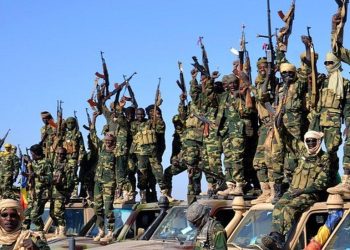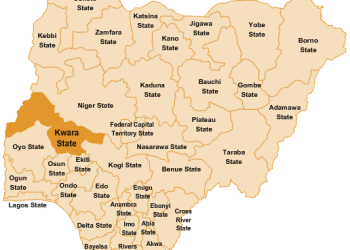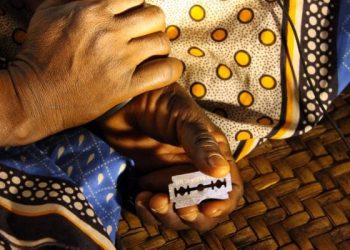A heart-rending humanitarian tragedy is brewing in the ranks of those rescued from the savage net of Boko Haram insurgents in Nigeria’s North-East region. In a development that is not totally surprising, about half of the 1,000 girls and women newly liberated from Boko Haram captivity by the military are said to be pregnant. This situation presents an emotional and moral crisis, a real dilemma in the care and rehabilitation of the victims.
Many of them were coerced into marriage with the depraved Islamists. Others were violently gang-raped, resulting in an epidemic of unwanted pregnancies. This is atrocious. In a particular instance, health authorities said that 214 of 234 women rescued from the Sambisa Forest, Borno State, the epicentre of the Islamic terror, were pregnant. All hands need to be on deck in providing for the needs of these people.
The toll has been too heavy on the women; some of whom had spent more than a year in captivity before help came from the military. Apart from the dastardly killing of their husbands and sons in their presence, they were serially abused. They bear tales of hunger, sex slavery, rape and death. Many of them were indoctrinated and trained to become suicide bombers and gunrunners.
“Young women and girls are abducted, imprisoned and, in some cases, raped, forcibly married and made to participate in armed attacks, sometimes on their own towns and villages,” Amnesty International, a global rights group, said. Aisha, 19, one of the rescued girls, said, “I was among the over 100 girls trained to shoot and kill. I was also trained on how to use bombs and how to attack a village.” Another hostage, Margaret, told the British Broadcasting Corporation, “We saw so many ugly things. People were slaughtered with knives in front of us. It has changed my view of the world completely.”
Equally alarming is the fact that the figure of the expectant mothers is expected to increase in the days ahead: some international agencies estimate that as many as 1,000 women are still enslaved by the Islamist extremists. Boko Haram has earned a well-deserved global opprobrium in the past six years for its heinous killing sprees in Nigeria, massacring up to 16,000 innocent people by conservative estimates.
The blood-thirsty insurgents committed horrendous crimes, as they captured 300 towns and villages in the past 15 months in Borno, Yobe and Adamawa states. They sacked military barracks, police stations and even international forces. But after the Nigerian military started reasserting their supremacy earlier this year, it is now the fate of the pregnant women that is most pressing.
Babatunde Osotimehin, Executive Director, United Nations Population Fund Agency, says the organisation has “seen more than 16,000 pregnancies and deliveries in North-East Nigeria in the past year.” This is shocking. Yet, the government is pretending that it can handle this burgeoning crisis on its own. It should not be so.
Nigeria needs foreign assistance to save it from itself. Though President Goodluck Jonathan has not made a direct statement on the plight of the rescued hostages, he is, however, in a strong position to attract international help for them. The government should not abandon them to their fate. In the interim, these victims need physical and emotional therapy to rebuild their shattered lives.
Just as the international community is helping out in Nepal, which was devastated by a 7.8 magnitude earthquake on April 25, with a flurry of aid initiatives being coordinated by the United Nations, our vulnerable Boko Haram victims also need urgent help. There are many areas of concern: support for the pregnant girls/women and babies; medical care for the sick; sustained education for those that have been orphaned and shelter for those displaced. Nothing but a sound, coordinated plan will suffice in this situation.
The fate of the women is akin to the ordeal of the “comfort women” of Korea in the hands of soldiers of the Imperial Army of Japan, before and during World War II. The women, estimated at about 200,000, were used as sex slaves by Japanese soldiers in the war (1939-1945). A majority of them died from diseases while others became infertile because of the abuse they suffered. The few of them alive today are still waiting for a “proper apology” from the Japanese government, according to Amnesty International, which is pursuing their case.
Our pressing challenge is to cater for this army of innocent victims, and also prevent a recurrence of such evil in the future. The victims need the support of the state, philanthropists and humanitarian organisations. For their little ones, education will be the key to reordering their lives.
Also, the current military campaign against Boko Haram should be pursued to a logical conclusion, by routing the insurgents from their camps. This will curtail the activities of the extremists. At the end of the military offensive, we need to follow up with intelligence-led policing, in order to be ahead of them. It is going to be a long fight. But with the kind of resolve on display in the North-East by the military, the insurgents might not be able to go on the rampage again.













































